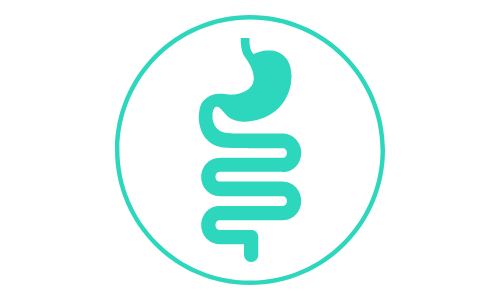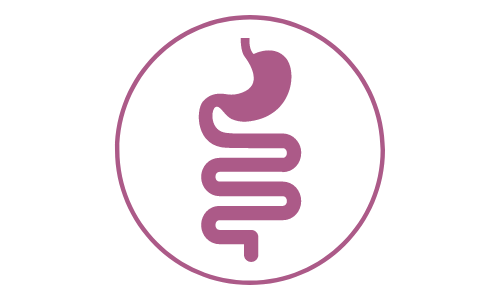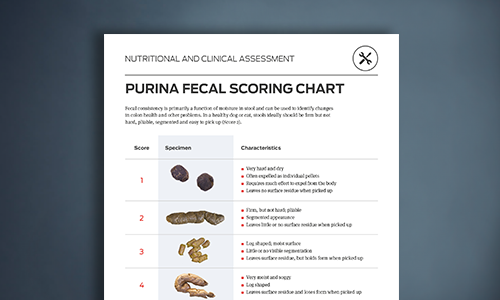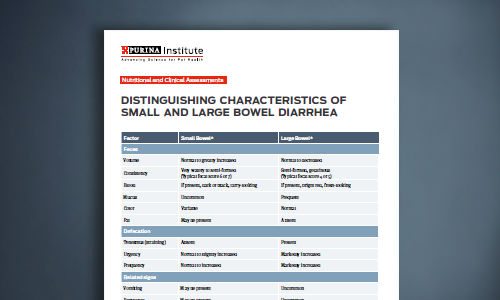

Filter
- Abnormal Body Condition
- Adult Cat
- Adult Dog
- Body Condition Assessment
- Brain & Cognitive Disorders
- Cardiovascular Disorders
- Cat Allergen Management
- Changing Diets
- Choosing a Pet Food
- Cognition Assessment
- Dental/Oral Health Disorders
- Dermatological Disorders
- Excess Body Weight
- (-) Fecal Scoring Assessment
- Feeding Management
- Feeding Philosophies
- (-) Gastrointestinal Disorders
- Healthy Cognition in Aging
- Heart Health
- Hepatic Disorders
- Highly Active and Working Dogs
- Hydration
- Immunity
- Indoor Cats
- Ingredients in Pet Food
- Kitten
- Lower Urinary Tract Health
- Making a Diet Recommendation
- Microbiome
- Muscle Condition Assessment
- Musculoskeletal Disorders
- Nutrients
- Nutritional Assessment
- Nutrition Conversation Tips
- Pancreatic Disorders
- Pet Food Labels
- Practice Scenario
- Puppy
- Renal & Urinary Disorders
- Senior Cat
- Senior Dog
- Treats & Supplements
Results
-

Gastrointestinal Disorders
Canine Acute Gastroenteritis / Gastroenteropathy
Short-term diet modification is an important part of any treatment plan for acute gastroenteropathy.
1 min to 5 min
-

Gastrointestinal Disorders
Canine Megaesophagus
Nutrition and feeding practices are critical to the supportive care of dogs with megaesophagus.
1 min to 5 min
-

Gastrointestinal Disorders
Canine Gastric Dilatation-Volvulus (GDV)
Feeding practices and environmental management may help reduce the risk of gastric dilatation-volvulus (GDV) development.
1 min to 5 min
-

Gastrointestinal Disorders
Intestinal Dysbiosis in Dogs and Cats
Diet modification is a key component of therapeutic plans for managing dogs and cats with intestinal dysbiosis.
1 min to 5 min
-

Gastrointestinal Disorders
Feline Acute Gastroenteropathy
Short-term diet modification is an important part of managing acute gastroenteropathy in cats.
1 min to 5 min
-

Gastrointestinal Disorders
Feline Chronic Gastroenteropathy
Nutritional interventions are an important part of the management of cats with chronic gastroenteropathy.
6 min to 10 min
-

Gastrointestinal Disorders
Feline Constipation and Megacolon
Water, dietary fiber and diet digestibility are important to the nutritional management of cats with constipation, obstipation and megacolon.
1 min to 5 min
-

Fecal Scoring Assessment
Purina Fecal Scoring Chart
The Purina Fecal Scoring Chart is a practical, easy-to-use tool that can help clients describe their pets’ stools.
1 min to 5 min
-

Fecal Scoring Assessment
Why Distinguish Between Small and Large Bowel Diarrhea
Identifying which part of the gastrointestinal (GI) tract is involved is a first step in diagnosing GI problems.
1 min to 5 min
